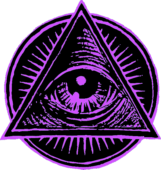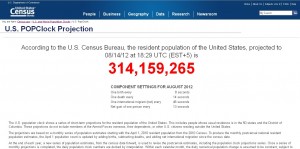I believe “American Pie” by Don McLean makes a reference to the JFK assassination. “American Pie” is the (early) Baby Boomer coming-of-age story, as the chronology of the song runs roughly from 1959 to 1971, the year “America Pie” was released. The song is about disillusion, and each of the song’s six verses describes a moment of despair (“the day the music died”) for that generation. Most of these moments revolve around music and its potentially redemptive powers, but the song also makes cryptic references to larger political issues of the time.
In the first verse “the day the music died” refers to the plane crash in 1959 that killed Buddy Holly, Ritchie Valens and the Big Bopper, all of whom were very young. The Big Bopper was 28, Buddy Holly was 22, and Ritchie Valens was only 17 when their plane went down, and Buddy Holly had been married for less than six months (“I can’t remember if I cried when I read about his widowed bride”). The second verse is more personal in the sense that it does not reference any major historical or musical figure (except, perhaps, for the Monotones, who released “The Book of Love” in 1958). Still, this verse describes the universal experience of lost or perhaps unrequited love.
The rest of the verses look back on the 1960s. The third verse laments how the musical icons of that era were no longer the voices of their generation. Rock and Roll came of age expressing the youthful ideals of the 1960s, but by the end of the decade the Beatles had broken up, Bob Dylan had become reclusive and had distanced himself from the protest songs of his early years, and the Rolling Stones had become hedonistic, full-fledged rock stars (“moss grows fat on a Rolling Stone”). The fourth verse speaks to the more violent, darker side of the 1960s. “Helter skelter in the summer swelter” refers not only to the Manson Family murders, but also to the urban unrest during the “long hot summers” of the 1960s. Also, many young men went off to fight in Vietnam, as “The marching band refused to yield”. The themes of the third and fourth verses are continued in the fifth verse, which decries the violence that marred the Altamont Speedway Free Festival. The Hell’s Angels provided “security” for the concert, but they were openly antagonistic to the audience, beating back hippies with pool cues. Mick Jagger, dressed in a ridiculous devil costume, tried haplessly to restore order during the Rolling Stones’ set but he clearly had no control over the situation.
The reference to JFK is in the sixth verse: “The three men I admire most: the Father, Son, and the Holy Ghost/Caught the last train for the coast the day the music died”. On one level, of course, this is a reference to the Christian holy trinity, and the song had already asked the question “do you have faith in God above?/If the Bible tells you so”. But the image of these figures catching the “last train for the coast” is an expression of loss, and the mournful tone of the verse points to the assassinations of the leading progressive figures of the era: John F. Kennedy, Rev. Martin Luther King, Jr., and Robert F. Kennedy, all of whom were cut down in their prime. As in the first verse, the song emphasizes the tragedy of death at an early age: JFK was only 46, RFK was 42, and MLK was 39 when they were assassinated.
Just over a year ago I almost had the opportunity to ask Don McLean about my interpretation of “American Pie”. On Tuesday, August 14, 2012, the U.S. Census Bureau (where I work) announced that “American Pi” occurred at 2:29pm that day. What that means is that the POPClock (that is, Current Population Clock that continually updates the estimated resident population of the United States) read 314,159,265, which is the mathematical constant Pi multiplied by 100,000,000.
The Chief Demographer of the Census Bureau called it “a once in many generations event…so go out and celebrate this American pi.” And he’s right. The last time anything like this occurred was in the late 1850s just before the Civil War when the population of the United States was in the low 30 million range.
At that time I googled Don McLean and discovered that he would be performing on September 15, 2012, at the Birchmere in Alexandria, Virginia–not too far from the Census Bureau. I contacted the Census Bureau’s Public Information Office and suggested that we invite Don McLean to come to the Census Bureau to mark the occasion somehow. They were ok with the idea but appointed me to head up the Invite-Don-McLean-to-come-to-the-Census-Bureau Committee (a committee of one, that is). I emailed him several times but the day came and went without a response. Then, oddly enough, his wife emailed me the following Monday, apologizing that she had missed my email. She told me, “I found your fax while organizing his mail” (my fax? organizing his mail? no wonder he didn’t get the message in time!)
Oh well, I probably wouldn’t have gotten much information from him anyway. Don McLean has avoided providing much in the way of concrete answers to the many queries about the song’s meaning. The Straight Dope relates a funny story of their resident musicologist having recorded Casey Kasem claiming that American Top 40 had contacted Don McLean around the time “American Pie” was on the charts. According to Casey Kasem, Don McLean overcame his reluctance to talk about the song’s deeper meanings to give AT40 the skinny on “American Pie”. But the article concludes with a letter (email?) reply from Don McLean who claimed he had never spoken to Casey Kasem or AT40.
Interesting that Don McLean’s website has a page devoted to “American Pie” that includes an interpretation of the song excerpted from the book The Don McLean Story: Killing Us Softly With His Songs by Alan Howard. I’d quote from that page but for some scary language at the bottom of the piece informing me that if I did so I’d be breaking the law. I’d be tempted to claim “fair use” and quote it anyway except that the interpretation isn’t all that profound or insightful (but then again I haven’t read the entire book). If you want to read an analysis of “American Pie”, perhaps the best place to start is “The Annotated ‘American Pie’” by Rich Kulawiec, or “Bob Dearborn’s Original Analysis of Don McLean’s Classic ‘American Pie’” which was among the first of its kind. There’s also “Understanding American Pie” or “The Ultimate American Pie Website“.
One last thought about the title of the song. Snopes refutes the rumor that “American Pie” was the name of the plane that crashed with Buddy Holly, Ritchie Valens and the Big Bopper aboard. So forget that one. Snopes quotes Don McLean stating that created the term–and he’s not telling what it means.
|

